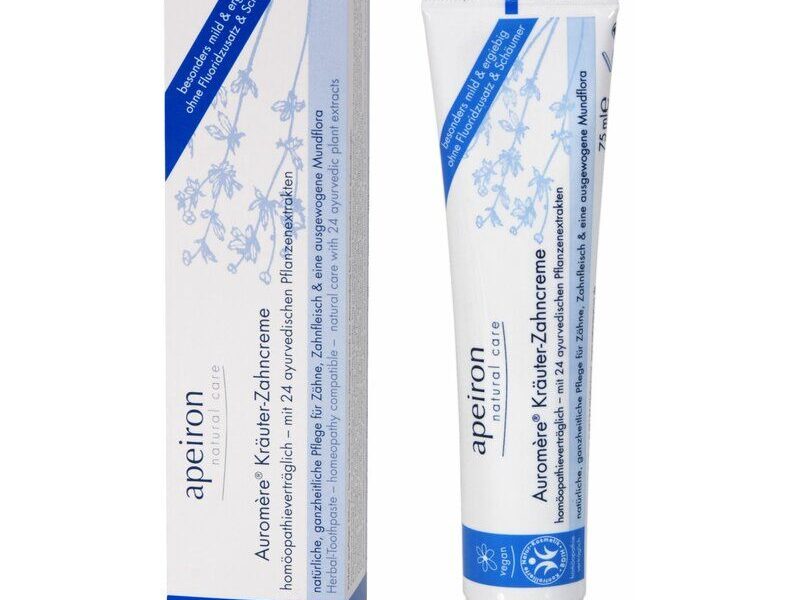Sensitive teeth can make eating, drinking, and even brushing a painful experience. If you’re looking for a natural solution, herbal toothpaste can be an excellent option. This guide will help you understand what to look for in herbal toothpaste for sensitive teeth, ensuring you choose a product that alleviates discomfort and promotes overall oral health.
Understanding Tooth Sensitivity
Tooth sensitivity occurs when the protective enamel on teeth wears down or gums recede, exposing the underlying dentin. This can lead to discomfort or pain when teeth are exposed to hot, cold, sweet, or acidic substances. Common causes of tooth sensitivity include:
- Brushing too hard: Aggressive brushing can wear down enamel.
- Gum recession: Often caused by periodontal disease, exposing the tooth roots.
- Tooth decay: Cavities can lead to sensitivity.
- Tooth grinding: Can wear down enamel.
- Acidic foods and drinks: Can erode enamel over time.
Herbal toothpaste can help manage sensitivity by using natural ingredients that protect and soothe teeth and gums.
Key Ingredients to Look For
When choosing herbal toothpaste for sensitive teeth, consider the following ingredients:
- Aloe Vera
- Benefits: Aloe vera is renowned for its soothing and healing properties. It helps reduce gum inflammation and promotes tissue healing, making it ideal for sensitive gums.
- Usage: Look for toothpaste with a high concentration of aloe vera to maximize its benefits.
- Chamomile
- Benefits: Chamomile is known for its anti-inflammatory and calming effects. It can help reduce gum irritation and soothe sensitive teeth.
- Usage: Often found in toothpaste designed for sensitive gums and teeth.
- Clove Oil
- Benefits: Clove oil contains eugenol, which has natural anesthetic and antibacterial properties. It helps numb the area and reduce pain associated with tooth sensitivity.
- Usage: Ensure the toothpaste lists clove oil among the primary ingredients for effective relief.
- Tea Tree Oil
- Benefits: Tea tree oil is a powerful antiseptic that helps reduce oral bacteria, which can contribute to gum disease and sensitivity.
- Usage: Toothpaste with tea tree oil can help maintain oral hygiene and reduce sensitivity caused by bacterial activity.
- Licorice Root
- Benefits: Licorice root has anti-inflammatory and antimicrobial properties. It helps in reducing gum disease and protecting enamel.
- Usage: Often included in herbal toothpaste for its overall oral health benefits.
- Neem
- Benefits: Neem is a natural antibacterial agent that helps prevent plaque buildup and reduce gum inflammation, contributing to decreased sensitivity.
- Usage: Toothpaste with neem is beneficial for maintaining oral hygiene and managing sensitivity.
- Peppermint and Spearmint
- Benefits: These essential oils provide a refreshing flavor and have mild antiseptic properties. They help keep breath fresh and reduce mild oral bacteria.
- Usage: Commonly found in herbal toothpaste, providing a pleasant taste and mild antibacterial effects.
- Baking Soda
- Benefits: Baking soda is a mild abrasive that can help clean teeth gently without causing additional sensitivity. It also neutralizes acids in the mouth, protecting enamel.
- Usage: Ideal for those looking for a gentle whitening effect without exacerbating sensitivity.
Other Considerations
Fluoride-Free Options
- Some people prefer fluoride-free toothpaste. While fluoride is effective in preventing cavities, there are herbal alternatives that can provide protection without fluoride. Look for remineralizing agents like hydroxyapatite.
Natural Sweeteners
- Many herbal toothpastes use natural sweeteners like xylitol or stevia instead of artificial ones. Xylitol, in particular, has been shown to help reduce cavities and improve oral health.
Avoiding Harsh Abrasives
- Sensitive teeth require gentle cleaning. Ensure the herbal toothpaste you choose does not contain harsh abrasives that can wear down enamel further.
pH Balance
- Toothpaste with a neutral or slightly alkaline pH helps protect enamel by neutralizing acids in the mouth.
Certifications and Labels
- Look for toothpaste that is certified organic, non-GMO, or cruelty-free to ensure the product meets certain health and ethical standards.
Tips for Using Herbal Toothpaste for Sensitive Teeth
- Brush Gently
- Use a soft-bristled toothbrush and gentle circular motions to avoid further enamel erosion or gum recession.
- Use Warm Water
- If cold water triggers sensitivity, try brushing with warm water instead.
- Regular Use
- Consistent use is key. Brush at least twice a day with herbal toothpaste to maintain its benefits.
- Complementary Care
- Use herbal mouthwash and floss to enhance oral hygiene. These products can work synergistically with your toothpaste.
- Diet Considerations
- Limit acidic foods and drinks that can exacerbate sensitivity. Drink plenty of water to help neutralize acids.
- Regular Dental Check-Ups
- Regular visits to the dentist are essential to monitor and manage tooth sensitivity and overall oral health.
Conclusion
Switching to Apeiron herbal toothpaste for sensitive teeth can offer a gentle and effective solution for managing discomfort. By choosing products with soothing, antibacterial, and anti-inflammatory ingredients like aloe vera, chamomile, clove oil, and neem, you can protect your teeth and gums naturally. Remember to brush gently, use complementary oral care products, and maintain a healthy diet to support your oral health journey. With the right herbal toothpaste, you can enjoy relief from sensitivity and a healthier, more comfortable smile.





